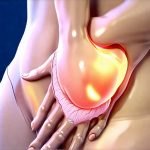Urinary tract infections (UTIs) are incredibly common, particularly among women due to anatomical differences. Many women experience the frustrating cycle of recognizing UTI symptoms – that burning sensation when you pee, the constant urge to go, and often, a general feeling of discomfort in the pelvic area. While these symptoms can be bothersome at any time, many report they seem significantly worse at night, disrupting sleep and adding an extra layer of misery to an already unpleasant experience. Understanding why this nighttime exacerbation occurs requires delving into the interplay between UTI physiology, lifestyle factors, and even our body’s natural rhythms while we sleep.
The perception that UTIs are more troublesome overnight isn’t necessarily a sign of a worsening infection itself; rather it’s often related to how our bodies process symptoms when we are less distracted and focused on daily activities. During the day, we tend to be occupied with work, chores, or social interactions, which can provide a degree of mental distraction from discomfort. Furthermore, increased fluid intake during waking hours helps dilute urine, potentially lessening irritation. As we sleep, these distractions diminish, and our focus naturally shifts inward, making us more aware of bodily sensations – including those caused by a UTI. This heightened awareness coupled with physiological changes during sleep is often the primary driver behind the nighttime symptom intensification.
Why Do UTI Symptoms Seem Worse at Night?
The increase in UTI symptoms overnight isn’t merely psychological; there are several physiological factors that contribute to this phenomenon. One key aspect is fluid intake and urine concentration. As mentioned previously, we generally drink less water while sleeping, leading to more concentrated urine. Concentrated urine irritates the bladder lining further, amplifying the burning sensation associated with a UTI. Think of it like pouring acid on an already irritated surface – it’s going to feel much worse! Additionally, our immune system undergoes subtle shifts during sleep. While generally suppressed to conserve energy, certain inflammatory responses can actually be heightened overnight, potentially intensifying symptoms like bladder pressure and urgency.
Another contributing factor is the position we sleep in. Lying down for extended periods can increase pressure on the bladder, leading to a greater sense of fullness and urgency. This effect is especially noticeable if you’re already experiencing a full bladder due to reduced urination during sleep. Finally, hormonal fluctuations that occur overnight might play a role, though this aspect requires further research. Changes in hormone levels can affect bladder sensitivity and immune function, potentially exacerbating UTI symptoms for some women. It’s important to remember that everyone experiences these factors differently; the degree of nighttime symptom intensification will vary from person to person. Can scented products contribute to irritation as well?
The body’s natural circadian rhythm also plays a role. Our kidneys filter blood at different rates throughout the day, generally slowing down during sleep. This slower filtration rate can lead to less frequent urination but potentially more concentrated urine and increased bladder irritation. It’s not about the infection getting worse overnight; it’s about our bodies functioning differently while we rest, which accentuates existing symptoms.
Understanding Bladder Irritation & Frequency
Bladder irritation is central to the discomfort of a UTI. The inflamed bladder lining becomes hypersensitive, reacting even to small amounts of urine or normal bladder contractions. This heightened sensitivity triggers frequent urges to urinate – often without producing much urine at all. This cycle can be incredibly disruptive, especially at night when sleep is crucial. Frequency isn’t just about the number of times you go; it’s also tied to the feeling of incomplete emptying, leaving you constantly anxious about needing to return.
The sensation of urgency – that overwhelming need to rush to the bathroom – is another hallmark symptom exacerbated by nighttime factors. When combined with bladder irritation and concentrated urine, urgency can become debilitating, forcing repeated awakenings throughout the night. It’s a vicious cycle: lack of sleep weakens the immune system, potentially prolonging the UTI, which then further disrupts sleep. Recognizing this cycle is the first step toward managing it effectively. Can holding urine contribute to these issues?
Finally, pain associated with UTIs isn’t limited to urination. Many women experience pelvic pain or lower back discomfort that intensifies when lying down. This can be due to muscle tension from frequent urges to urinate or general inflammation in the surrounding tissues. Addressing these broader symptoms is essential for comprehensive relief. Uroflowmetry help might provide insights into underlying issues.
The Role of Hydration & Diet
While it seems counterintuitive, increasing fluid intake is a crucial part of managing UTI symptoms – even at night (within reason). Staying adequately hydrated helps dilute urine, reducing irritation and flushing out bacteria from the urinary tract. However, avoid excessive fluids right before bedtime to minimize nighttime awakenings. Small sips throughout the day are more effective than large gulps. Consider water as your primary beverage choice; sugary drinks can sometimes worsen inflammation.
Dietary choices also play a role. Certain foods and beverages can irritate the bladder, intensifying symptoms. Common culprits include caffeine, alcohol, spicy foods, citrus fruits, and artificial sweeteners. Identifying and minimizing these triggers may provide some relief. Conversely, incorporating foods with anti-inflammatory properties – such as berries, leafy greens, and fatty fish – might help support your immune system and reduce inflammation.
It’s also important to consider the role of probiotics. While more research is needed, some studies suggest that probiotics can help restore a healthy balance of bacteria in the gut and urinary tract, potentially preventing future UTIs. However, never rely on probiotics as a substitute for medical treatment; they should be considered an adjunct therapy. A sudden change in diet can also play a role.
What To Do When Symptoms Intensify at Night
When UTI symptoms flare up overnight, several strategies can offer temporary relief. First, don’t hesitate to get out of bed and urinate even if you feel like you just went. Emptying the bladder completely can provide immediate comfort. Second, gentle stretching exercises or a warm compress applied to the lower abdomen may help relieve muscle tension and pain. Third, consider taking an over-the-counter pain reliever (such as ibuprofen) if your doctor has approved it – but remember this only addresses the symptoms, not the underlying infection.
However, it’s crucial to seek medical attention if you suspect a UTI. Self-treating can lead to complications and antibiotic resistance. A healthcare professional can accurately diagnose the infection and prescribe appropriate treatment – usually antibiotics. If your symptoms are severe or accompanied by fever, back pain, nausea, or vomiting, seek immediate medical care. Is it better to take medication at a certain time?
Finally, prioritize sleep hygiene. Create a relaxing bedtime routine, ensure your bedroom is dark and quiet, and avoid screen time before bed. A well-rested body is better equipped to fight off infection and manage symptoms effectively. Remember that managing UTI symptoms, especially those that worsen at night, requires a multifaceted approach encompassing hydration, diet, lifestyle adjustments, and – most importantly – professional medical care. Can constipation also exacerbate the situation? And finally, UTI symptoms appear quickly in some cases.





















